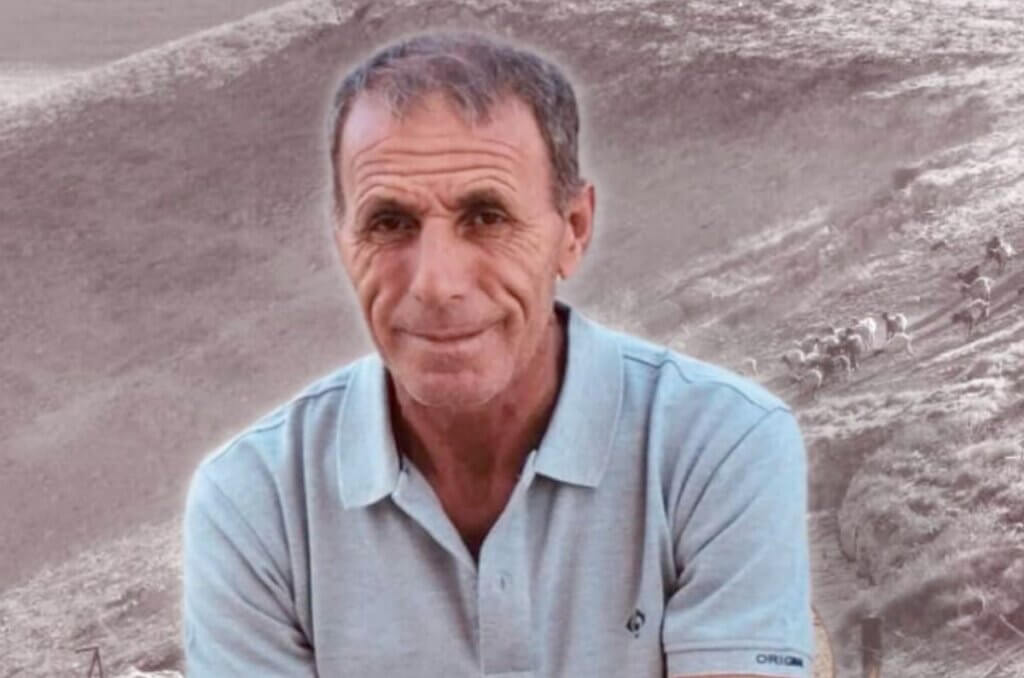It’s been a week since Hafez Huraini was arrested by the Israeli military, after he was attacked and brutalized by a group of Israeli settlers while he was farming on his land.
I’ve been reflecting on Hafez’s story a lot since writing about it last week, just after he was detained and thrown into interrogation – just mere hours after having both his hands broken by settlers.
To me Hafez’s story is the embodiment of Israeli apartheid, and the themes I’ve covered for so many years reporting on the ground in occupied Palestine. It’s a story of violence, injustice, inequity, and a yearning for freedom in a place where oppression reigns supreme.
As I spoke to Hafez’s sons, Mohammad and Sami, both whom I have met and spent time with when reporting in their home of Masafer Yatta, the sense of impending doom, injustice, and oppression were overwhelming.
Here you have young men, born and raised in a place where they were always treated as inferior by a foreign army that occupied their land. They grew up surrounded by checkpoints and firing zones, and spent their formative years watching the Israeli government confiscate their village’s land and hand it over to Israeli settlers.
As adolescents they watched as their community was cut off from electricity and water networks, their homes were destroyed for lacking Israeli building permits, and their neighbors were arrested in the middle of the night for “security” reasons.
All the while the settlers next door, who came from various places around the world, continued to expand their settlement with government assistance, getting access to water, electricity, security, and freedom of movement along the way.
As they grew into adults, and began their own activism, they were confronted again with what it meant to be a Palestinian living under Israeli occupation. They faced arrest, detention, threats, and interrogation, for things as simple as raising a Palestinain flag, or holding peaceful demonstrations against the demolition of their homes.
They’ve seen the settlers of Ma’on and Havat Ma’on attack their family, friends, and neighbors, under the watchful eye of the Israeli army and police, without ever being punished, let alone arrested, interrogated, and tried in court.
And so, on September 12th, when Mohammad saw the masked and armed settlers approaching him and his father, he prepared himself for the worst.
Armed with bats and clubs with metal spikes on the ends, along with M16s, the settlers began their attack, swinging at Hafez and Mohammad. Hafez did what anyone else in his position would do, he picked up his shovel that he was using to farm his land, and swung it towards the armed settlers to fend them off.
And this was his only mistake. He dared to defend himself against the masked, armed settlers who broke both his hands during their assault.
As a Palestinain, Hafez, his kids, and community members knew that the odds were stacked against him.
It didn’t matter that there were multiple eyewitnesses and video evidence to corroborate his story, proving that he was defending himself from the settler attack. It didn’t matter that the settlers invaded his land, broke his hands, or shot live ammunition in his direction.
All that mattered was that he was a Palestinian, and for this, he would be arrested, interrogated, imprisoned, tried in a military court system, and accused of attempted murder against a Jewish Israeli.
All the while, the settlers who attacked Hafez – the settlers who are the entire reason why he is languishing with two broken hands inside an Israeli prison – are free, living their lives as usual.
None of them were arrested, interrogated, or imprisoned for the attack that they committed on camera. All that mattered was that they were Jewish Israelis, and that ensured their freedom under the law, no matter the crime they committed.
Because Hafez Huraini is a Palestinian, and was born and raised in at-Tuwani in Masafer Yatta, he is ruled by Israeli military law, and all the rules, restrictions, and oppression that comes with it.
Because Itamar Cohen, the settler who attacked Hafez and was injured when Hafez defended himself, is a Jewish Israeli, he is ruled by Israeli civil law, along with the hundreds of thousands of other Jewish settlers living in the occupied West Bank in settlements in contravention of international law.
Two people, living under two different systems, based on their race and ethnicity. It is apartheid, and it is just a small snippet of what we see across the West Bank and occupied Palestine every day.
Today, Hafez continues to sit in prison, after his detention was extended for a third time on Monday, September 19th. His charges have been reduced from attempted murder to aggravated assault, but he still stands on trial in a military court, a court that has been described by rights groups as a Kangaroo court, A court that has over a 99% imprison rate, and imprisons children for throwing stones, and even imprisons people for years on end with no charges at all.
Hafez’s children, who have been raised to stand tall in the face of the Israeli occupation, and who have dedicated their youth to standing up for their rights, and the rights of their community, are noticeably anxious about the future of their father.
They know that they are not dealing with a just system that would judge their father fairly, and it is for this reason that they are appealing to the international community for help, and to put pressure on the Israeli government to release their father.
After all, this is the same government and system that is attempting to expel the Huraini’s and their community from their land, so how could they ever expect this system to treat them fairly?


